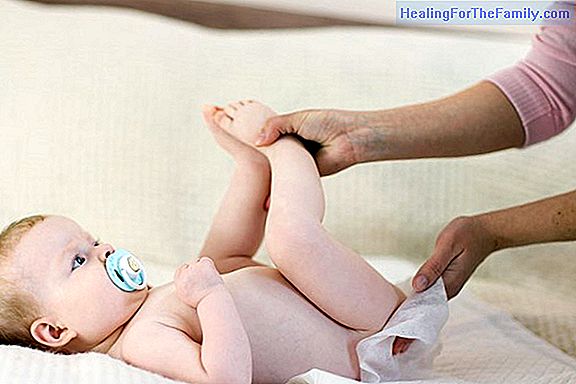What is the Pygmalion effect and how does it affect children?
Did you know that if you expect good results from your children, it is very possible that your children obtain those good results? On many occasions, parents do not have high expectations with their children about whether they will be good at math or will be good at some sport. If they see that they
Did you know that if you expect good results from your children, it is very possible that your children obtain those good results? On many occasions, parents do not have high expectations with their children about whether they will be good at math or will be good at some sport. If they see that they do not stand out, you usually think that it is because they do not have qualities. However, that means that you are involuntarily influencing your child's performance. This is what is known as the Pigmalion effect and today we give you the keys so you can use it in your favor.
What is the Pygmalion effect in children

This effect is not something new, its discovery goes back to 1968 in the research that Rosenthal and Jacobson did in the Oak School where their main objective was to find out if poor children failed or improved by the high or low expectations that the professor had about them. In order to get the teachers' expectations modulated, they were given false information about the abilities of their students.
These authors discovered that when a teacher believes that a student has low intellectual abilities, he not only tries less to teach him but also his behavior is such that even that little effort will be unsuccessful.
How parents exercise the Pygmalion effect in children
The Pigmalion effect at home happens when the expectations you have about your child's ability and abilities are very low or very high, in that case, according to the Pigmalion effect, your child would look such and how you see it.
Even though we often think that we are not telling our thoughts or our opinion about them, your child is able to notice it because of how you behave unconsciously with it, often the visual contact, and the way directing yourself to him reveal more about you than what you say. The way to convey these expectations has to do with the behavior and the different way of treating others:
- Verbal or non-verbal communication: It is useless to say that we believe in it if we do not accompany it afterwards with gestures or with the tone of voice. Usually, in a conversation, your child will heed 80% of how you say it and how you express yourself to what you are saying.
- Lack of attention: Call less frequently and attend less to children according to what issues. For example, if you think your son is bad at football, when he is playing a game, you will cheer him less or go less to see him.
- Higher number of criticisms and more often: In this case, you will advise more about what you have and do not have to do, what you interpret as a way to help you improve is just a way of transmitting to your son that you know does not have many abilities.
- They require less work and less effort: Therefore, if you know that your child is struggling with mathematics, you will only demand a fair pass or even tell them that nothing happens because they leave that subject. So then he will do even less to approve.
How to use the Pygmalion effect to help children
However, we can use this effect in our favor. If instead of thinking that your child has low ability and avoid talking about notes, think that it is intelligent and you recognize it in front of more people, you can empower him to have more confidence in himself and end up improving not only his performance but also your self-esteem.
It is not about lying about something that does not exist but about creating a more motivating environment in which you are able to feed that effort and that concern you have about its development, for this you need to be attentive to any small progress you make. For example, maybe you do not give wrong mathematics, surely there is a part that carries something better and that is what you have to value and encourage.
It is not about increasing your capacity in a magical way or being an illusion and putting goals too unattainable, but rather to maximize the potential that he already had. If you believe in him, he will believe in himself. This effect increases even more if you have a positive self-esteem, since that will inspire your child to have it too.












